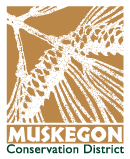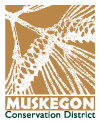NATIVE LANDSCAPING
Over the past century and a half native landscapes throughout Michigan have been dramatically altered, ecological habitats lost, and native species displaced by our actions. Today a patchwork of 2nd generation forests, remnant prairies, isolated wetlands, and fragmented dunes fill the landscape. Yet, the natural habitat continues to be critical to public health and welfare; directly impacting the vitality, sustainability, and economic vibrancy of our local communities. Restoration of native landscapes are integral to reversing the trend of habitat loss and degradation; and can be as simple as utilizing native plants to attract a variety of birds, butterflies, and other wildlife.
Using native plants and creating native landscapes in wilderness, urban, and suburban areas also benefits the environment. Native plants are hardy because they have adapted to the local conditions and once established do not need pesticides, fertilizers, or watering. Not only is this good for the environment, it saves time and money. A native landscape also saves time on maintenance compared to traditional manicured landscapes; which also require the use and demand for non-renewable resources which directly impact water and air quality.
The Muskegon Conservation District continually works with private and public landowners to protect and restore our native landscapes. District staff can help you with every step along the way; from creating a small garden increasing your connection with nature to installing a comprehensive ecosystem restoration.
The Muskegon Conservation District also offers multiple opportunities throughout the year to purchase native species the proceeds of which support the ongoing native landscape restorations we do. Some of these opportunities including or Spring Seedling Fundraiser, Native Perennial Sale, and Spring & Fall Dune Grass orders. The District also offers native perennial seeds and native grass seeds throughout the year. Individuals can receive more information regarding these opportunities by signing up for our e-mail newsletter, visiting the MCD Facebook page, or by getting on our mailing list. For tips on how to plant, please see our planting guide here.

